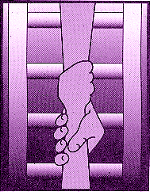Yogi Berra once said, “When you come to a fork in the road…take it!”. Many people come to the point where they hesitate about which way to go, now, with the rest of their working life. Such a dilemma may occur due to yet another organizational downsizing, or merely due to a professional “midlife crisis” (which can occur at any chronological age).
Recently two of my client contacts have been let go due to large organizational restructuring. Yes, restructuring, downsizings and resultant lay-offs still happen! Those who are “left behind”, as well as those who are newly questing after new professional opportunities, may secretly wonder, “What would I do if that happened to me? Where on earth would I get another job as good as this one…that pays as well? I haven’t dusted off my resume in years, never mind having to sell my gifts, talents abilities and competencies in an interview! Who else would want me after all these years?” These reflective questions may occur to people who are not quite in the middle of their careers, too. Even being with one employer for as little as three to five years–especially if you’ve loved your work with that employer–may put you in a bit of a tail spin if you were faced with the idea or reality of leaving. This moment of truth may also occur for people who, while still basically loving their work, know they are many years from retirement, yet feel themselves plateauing, getting stale or, perhaps, feeling professionally bored.
Whether your career is being shook up from the outside-in or the inside-out, call it! Here are six “Calls” to help you confidently pick up that metaphoric fork and proceed with the future work feast you deserve:
 1. Call your gifts, talents, abilities, competencies, and skills. Make a list of each and everyone you can think of. All of them. Let your thoughts run wild and apply pure brainstorming strategies to this reflective exercise (meaning that if the idea comes into your head, you unquestioningly accept it and write it down!). Tell your internal “Editor” or “Yeah But..Carping Skeptic”, to “take five” while you complete this exercise. When you think you’ve exhausted your list, think of ten more!
1. Call your gifts, talents, abilities, competencies, and skills. Make a list of each and everyone you can think of. All of them. Let your thoughts run wild and apply pure brainstorming strategies to this reflective exercise (meaning that if the idea comes into your head, you unquestioningly accept it and write it down!). Tell your internal “Editor” or “Yeah But..Carping Skeptic”, to “take five” while you complete this exercise. When you think you’ve exhausted your list, think of ten more!
Ask yourself:
- What are my passions and interests?
- What do I love to do, more than anything else?
- What do I care about, more than anything else?
Identify ways to marry your passion and values to your professional contribution.
 2. Call your fears. Fear is a paralyzer. It can keep you stuck in neutral forever. Many people have heard that fear, as an acronym, stands for False Education Appearing Real. “Behold the turtle…who only makes progress when he sticks his neck out!”.
2. Call your fears. Fear is a paralyzer. It can keep you stuck in neutral forever. Many people have heard that fear, as an acronym, stands for False Education Appearing Real. “Behold the turtle…who only makes progress when he sticks his neck out!”.
Push yourself forward by asking:
- What am I afraid of?
- What could possibly happen if I chose one career path over another?
- What is keeping me from actively pursuing the career path I’d really like to follow (either right here within my current organization, or external to it)
- What’s the “pay off” for me to just stand at the fork in the road, all the rest of my professional days, and never choose one path over another? what’s the damage?
- Is it really a “mistake” if I choose a path that turns out to be not right for me, after all,…or can I see that travelling a little way down that road is part of the tapestry of my working wisdom in progress…and cut my own “dirt path” to the other road, if need be?
- What is blocking me? Do I want to push through it, or do I want to stick with my current malaise all the rest of my days?
Two quotes come to mind, here: “If you argue for your limitations…you get to keep them!” (from Jonathan Livingston Seagull). The other, “Indecision is a decision” …a decision to stay stuck. The best way out of fear and indecision about what’s to happen next in your professional life is to give yourself a “butt kick” and take some action…any action is better than no action, in many cases. Sometimes it’s better to make a choice, and find out it’s not right for you, after all, rather than not make any choice…ever, and spend the rest of your days carefully avoiding your definition of “making a mistake”.
 3. Call your role models and supporters. Behaviour modelling and identifying your network are terrific strategies for getting past those troublesome forks in the road.
3. Call your role models and supporters. Behaviour modelling and identifying your network are terrific strategies for getting past those troublesome forks in the road.
Ask yourself:
- Who are the people that I most admire?
- What are their qualities, that make them so admirable, in my eyes?
- How can I fold these admired qualities into my own way of being, while still keeping my own sense of self and integrity?
- What do I need to do to successfully incorporate those qualities into my personality?
- Who are the people I can turn to when I need specific results?
Who are my:
- Cheerleaders–those who remind me of my strengths; provide me with the loving support I sometimes need
- Skill Builders–those willing to teach me new skills; help me brush up and refine old skills; suggest strategies for helping me to get the results I desire
- Recommenders–those who suggest and help me identify the next steps to take to get me where I want to go; those who bring information to me without me even asking; let me know of new and existing opportunities and resources to help me move along; keep their ear to the ground with my advancement in mind
- Challengers–those who pitch thought provoking questions and “what ifs” to keep me on my toes and stimulate my development; cause me to reconsider my strategies, approaches and plans; encourage me to hone my inter- personal and negotiating skills and provide me with opportunities to practice
- Spotlighters–those who promote my profile and visibility by heralding and advertising my achievements; they encourage me to boldly and unashamedly advertise my achievements, interests and aspirations
- Esteem Builders–encourage me; support and champion my positive self- image; help me identify and choose positive stories to tell myself
- Connectors–those who directly or indirectly put me in touch with helpful people and/or information to move me forward; share information resources
- Political Advisors–those who give me advice on how to approach various people and problems; they help me determine strategic and politically savvy ways to get things done
4. Call a Coach. It takes two to see one. Trust that another may help you to see your blindspots. Even if you potentially can hold your own hand through some dark hours of the professional soul, while you figure out which way to go next, why would you want to take the long road, when a short cut is available? Career coaching and counselling has been a growing service over the past decade. Explore how these professionals could help you choose your right road.
 5. Call on Success. Perhaps now is a good time–at the fork in the road–to clearly define what “success” means to you.
5. Call on Success. Perhaps now is a good time–at the fork in the road–to clearly define what “success” means to you.
Ask yourself:
- What do I want out of my life? my work?
- How can a shift in career, or the attitudes and behaviours I bring to my current position, promote and foster my life goals?
- What are my life goals? Have I ever bothered to think of these? Is now a good time to (re)visit my life goals?
- What does “success” mean to me?
- What does “success” mean to the world around me, generally speaking?
- What does “success” at my job / in my profession mean, within my organization?
- How do I define success in my personal life?
- How does “society’s” prescribed definition of personal and professional success, influence my own definition of this concept?
- Do I suspect that my definition of success will change as I grow older? How?
- How can I broaden my personal definition of success?
 6. Call a Plan–S.T.A.N.–Strategic, Timely And Network… your guts out! Some people get lucky and finally get where they want to go by L.B.W.A.–Living By Wandering Around. You can do that…and you may eventually “get there”…and, you may never get there, too! Make a strategic plan to maximize the probability of getting where you want to go. Map it out–literally. Try the right brained exercise of mind-mapping, or build a collage on the theme of where you want to professionally “go”. Map out with words, as well, practical, “do-able today” steps to move yourself forward.
6. Call a Plan–S.T.A.N.–Strategic, Timely And Network… your guts out! Some people get lucky and finally get where they want to go by L.B.W.A.–Living By Wandering Around. You can do that…and you may eventually “get there”…and, you may never get there, too! Make a strategic plan to maximize the probability of getting where you want to go. Map it out–literally. Try the right brained exercise of mind-mapping, or build a collage on the theme of where you want to professionally “go”. Map out with words, as well, practical, “do-able today” steps to move yourself forward.
Ask yourself:
- What is one small but positive step I can put into action, today, to move myself forward?
- What two other things can I do, within a defined and reasonable parameter of time, eg. next 30 days, to move me forward even more?
- What are at least two strategies for networking with others (who have something in common with me) that I am comfortable implementing immediately?
- How many ways can I continue to expand my network?
 To come full circle, to that original quandary…remember these other Yogi Berra-isms, as you contemplate your life altering decisions about what to do with your “fork in the road”: “It’s tough to make predictions, especially about the future”…but “the game isn’t over until it’s over“, and, if you merely stand still at the fork in the professional road, and never make a move towards what to do next, it may be“deja vu all over again”, and, “if you don’t know where you are going, you might wind up someplace else”. And you wouldn’t want to do that. Would you?
To come full circle, to that original quandary…remember these other Yogi Berra-isms, as you contemplate your life altering decisions about what to do with your “fork in the road”: “It’s tough to make predictions, especially about the future”…but “the game isn’t over until it’s over“, and, if you merely stand still at the fork in the professional road, and never make a move towards what to do next, it may be“deja vu all over again”, and, “if you don’t know where you are going, you might wind up someplace else”. And you wouldn’t want to do that. Would you?
You can reprint any of my articles for your own organization, association or professional publications, All I ask is that you include the following attribution:
Nina Spencer is a business/motivational keynote speaker, and workshop facilitator, specializing in interpersonal communications and rebuilding workplace passion. Nina can be reached at 416-588-3334. To book Nina’s keynote or workshop services for your organization’s event, visit ninaspencer.com or email nina@ninaspencer.com
Please send an email to let me know the name of the publication, the date the reprint will appear, and a hard copy of the publication would be greatly appreciated as well.











